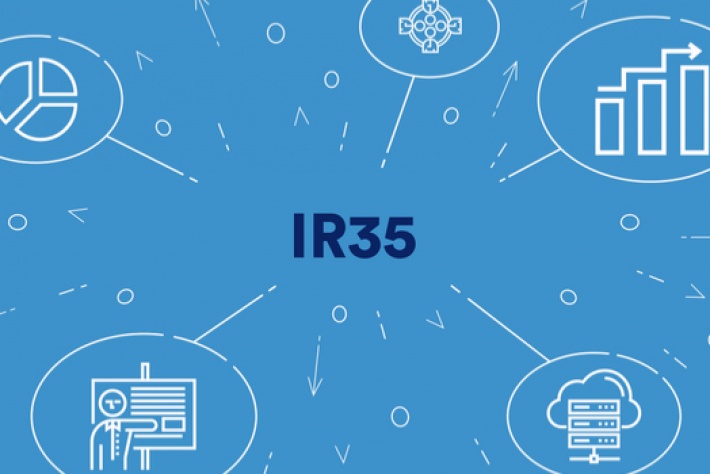What Contractors Need To Know About IR35 In 2018

IR35 is a piece of legislation that came into force in April 2000 as an attempt by the government to curtail tax avoidance by companies paying workers ‘off-payroll’ as contractors, when in fact they should have been set up as employees and subject to PAYE deductions.
The main point of IR35 is to identify these workers as ‘disguised employees’ and then reclaim any underpaid tax and National Insurance Contributions and ensure that they are either set up and paid as employees in the future, or they make the necessary PAYE level tax and NI payments.
The IT35 rules can be surmised to apply to contractors unless they are working through an Umbrella Company or recruitment agency, in which case they would be paying PAYE deductions anyway. In these cases HMRC may launch an investigation into the circumstances of the contract and specialist IR35 tax advisors would be called in to examine the matter and make a legally binding decision.
How Do You Know If Your Contract Falls Under IR35?
HMRC has developed an online tool for testing whether a contractor should be considered as an employee instead. However there are a number of key areas that should be considered to provide an initial appraisal of the potential employment status of a worker.
- Control – as a true contractor you should have a high degree of control over your working pattern, working hours and how and where you complete the work. If this is more proscribed by your employer then this could be a sign that your work could fall under IR35.
- Substitution – as a contractor you may be able to send a substitute worker in your place if you are not available, in which case you may pay the substitute yourself and cover any necessary training costs or expenses.
- Mutuality of Obligation – as an employee your employer is obliged to offer you work and as their employee you are obliged to accept it. However as a true contractor this mutual obligation is negated.
- Employment Rights – as a contractor your contract of engagement is unlikely to mention rights which are specific to employment such as holiday and sick pay, whereas legally these must be included in an employment contract.
- Equipment – does the employer provide any equipment necessary to complete the required work, or do you, as a contractor, have to provide this yourself?
- ‘Part and Parcel’ – as an employee you will be seen as ‘part and parcel’ of your firm such as having a swipe card for entry, having a staff email and using the staff canteen, however to be viewed as a self-employed contractor you may not be included in these.
What Happens If Your Contract Falls Under IR35?
If HMRC takes the view that you should be engaged as an employee rather than as a self-employed contractor, then you will have to pay standard tax and NI deductions. This can result in a decrease in your take home income compared to if you were being paid via a Limited Company using a combination of a low basic salary and tax efficient dividends.
If you have been found to be working as a self-employed contractor when you should have been directly employed, then HMRC can levy a number of penalties on you. These can include:
- Being charged interest on any tax and NIC’s owed
- A penalty of 30% of the unpaid amount being added if you have been found to be ‘careless’
- A penalty of 70% of the underpaid amount being added if HMRC deem that you deliberately did not make the necessary IR35 payments
- A penalty of 100% of the underpaid amount if you are found to have known that you were inside IR35, did not calculate your payment and deliberately tried to conceal the underpayment.
Changes To IR35 For 2018
In the Autumn 2017 budget the Chancellor announced a number of changes to the IR35 legislation that will continue to affect contractors into 2018. These include:
Public Sector Engagements
Specific to public sector engagements, the burden of assessing IR35 culpability will shift from the working individual or public service company through which the individual is provided, to the public sector employer, agency, or third party that is engaging them. In reality this will probably mean that when taking on public sector contracts there will probably be more rigorous checks to ensure compliance. This is also shift is also expected to be applied to private sector engagements in the future.
Removal Of The 5% Tax Free Allowance
Previously if your contract was caught under IR35 then when calculating your tax and NI payment you would only have to actually pay 95% of the amount, the remaining 5% being deemed to be tax free to cover any unspecified business expenses. However this has now been abolished, purportedly due to the shifting of the burden of deciding whether IR35 rules apply away from the contractor.
The IR35 legislation is in fact extremely complex and to fully understand this requires specialist knowledge. Handpicked Accountants can connect you with your ideal accountant in your area who can help you navigate the minefield of IR35 and any other issues around contractors’ finances. Each of the firms that we work with have been thoroughly vetted and so you can be sure that you can trust them to do a great job for a fair and reasonable price.
Contact Handpicked Accountants today and let us handpick the perfect accountant for you.


